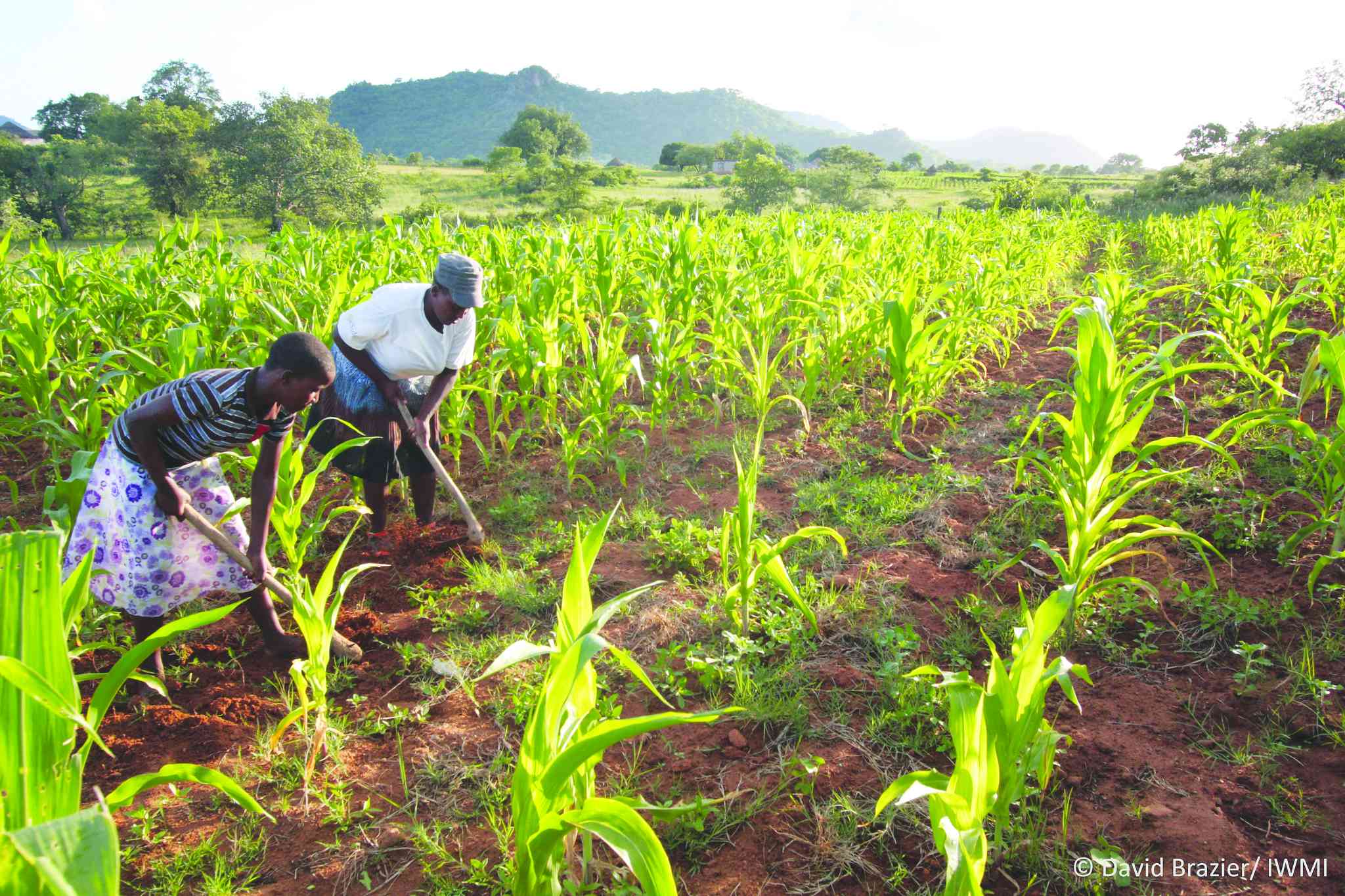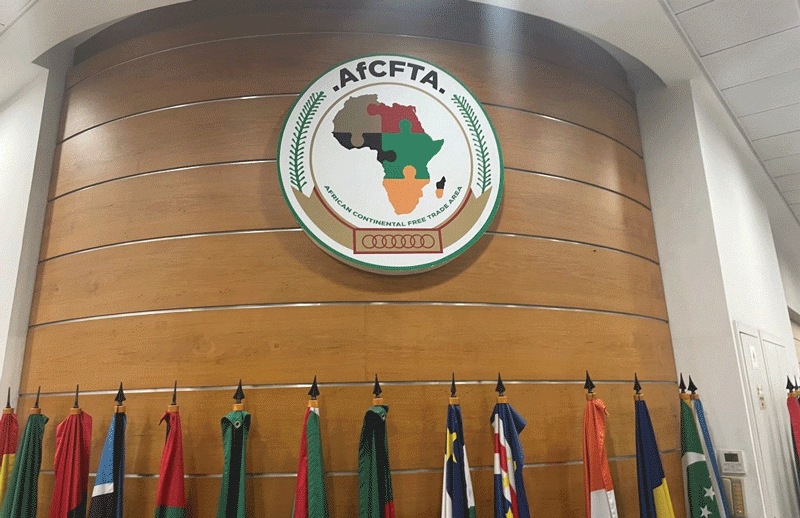
IN the heart of Zimbabwe’s Mashonaland East province, the smallholder farmers of Goromonzi are breathing a sigh of relief.
After a devastating El Niño-induced drought ravaged the 2023/24 farming season, leaving crops withered and hopes dashed, a glimmer of hope has emerged.
Thanks to the Agricultural Index Insurance Pilot, 1 800 smallholder farmers in Goromonzi recently received US$65 each in insurance payouts, a crucial lifeline to help them prepare for the 2024/25 farming season.
The payments, totalling US$232 996,75, marked a significant milestone in Zimbabwe’s efforts to cushion its agricultural sector against the growing threats of climate change.
For farmers such as Charles Chidanga and Rutendo Taruvinga, the payouts are more than just money — they are a testament to the power of innovation, collaboration, and resilience in the face of adversity.
Season of despair
The 2023/24 agricultural season was one of the most challenging in recent memory for Zimbabwe and the broader southern African region.
El Niño, a climate phenomenon characterised by unusually warm ocean temperatures in the Pacific, disrupted weather patterns, leading to prolonged droughts and erratic rainfall.
- FC Platinum bounce back
- New perspectives: ‘We also died for this country!’
- Mayor calls for unity as 8 CCC cllrs sworn in
- New perspectives: ‘We also died for this country!’
Keep Reading
In Zimbabwe, where agriculture is the backbone of the economy and a primary source of livelihood for millions, the impact was catastrophic.
President Emmerson Mnangagwa declared a national disaster earlier last year, appealing for US$3 billion in international aid to address the crisis. Rural communities, which make up 60% of Zimbabwe’s population, were hit the hardest.
In Goromonzi, a farming town known for its maize, tobacco, and vegetable production, the drought left fields barren and farmers grappling with reduced crop yields and financial uncertainty.
Beacon of hope
Amid the despair, the Agricultural Index Insurance Pilot emerged as a beacon of hope. Launched in May 2023 through a partnership between the Insurance and Pensions Commission (Ipec) and the International Finance Corporation (IFC), the initiative aimed to shield smallholder farmers from the financial fallout of climate-related risks.
Other partners who participated in the development of the product included, the Ministry of Finance, Economic Development and Investment Promotion; the Ministry of Lands, Agriculture, Fisheries, Water and Rural Development; Insurance Council of Zimbabwe; Access to Insurance Initiative; Insurance Brokers Association of Zimbabwe; Women Farmers’ Land and Agricultural Trust; Zimbabwe Farmers’ Union; and World Food Programme.
The pilot, part of the broader Agricultural Insurance Support Project, introduced an innovative index-based insurance product tailored to the needs of smallholder farmers. Under the programme, farmers paid a premium of US$15 each to enrol in the Farmer’s Basket Insurance Product, which combined weather-index and area yield-index insurance.
The product was designed to trigger payouts in the event of adverse weather conditions, such as drought, that could jeopardise crop production.
For the 1 800 Goromonzi farmers, who participated, the payouts came at a critical time, providing much-needed funds to purchase seeds, fertilisers, and other inputs for the 2024/25 farming season.
Farmers’ voices: Gratitude, optimism
For Chidanga, a Goromonzi smallholder farmer, the insurance payout is a game changer.
“We have received our payment, and we are happy about this initiative,” he said in recent interview, during the payout ceremony.
“It shows that the government is willing to work with communities to eradicate poverty. This money will help us kick-start the season and buy the inputs we need.”
Chidanga’s sentiments were echoed by Taruvinga, a farmer from Ward 9, who initially doubted whether the project would deliver on its promises.
“I am so delighted. I never thought this would happen,” she said.
“Even though we knew it was a government initiative, I wasn’t sure it would cover us. But now that we have been paid, I see how important this is.”
The payouts have not only provided financial relief but also restored farmers’ faith in the system. For many, the initiative represents a shift from traditional, often unreliable, forms of assistance to a more sustainable and empowering approach.
Govt commitment, prospects
The success of the Goromonzi pilot has sparked calls for scaling up the initiative to benefit smallholder farmers across Zimbabwe.
Finance, Economic Development, and Investment Promotion minister Mthuli Ncube, who officiated at the payout ceremony in Goromonzi, emphasised the government’s commitment to supporting farmers in the face of climate change.
“Farmers continue to face headwinds, particularly those related to climate change,” Ncube said.
“Erratic rainfall patterns, prolonged droughts, and other climate-induced risks have threatened their productivity and income security, putting their livelihoods at great risk.”
Ncube highlighted the collaborative efforts of the government, Ipec, the Access to Insurance Initiative, the Insurance Council of Zimbabwe, and development partners in spearheading the pilot.
He also announced plans to subsidise insurance premiums for smallholder farmers, making agricultural insurance more accessible and affordable.
“This subsidy will help ensure that more farmers can benefit from these innovative risk-mitigation products,” he said.
The government’s commitment to financial inclusion and food security is evident in its support for initiatives such as the Agricultural Index Insurance Pilot.
By empowering farmers with tools to manage climate risks, the programme not only safeguards livelihoods but also strengthens the resilience of Zimbabwe’s agricultural sector.
Model for the future
The Goromonzi pilot serves as a model for how innovative financial products can address the challenges posed by climate change. Index-based insurance, which uses objective indicators such as rainfall levels or crop yields to trigger payouts, offers several advantages over traditional insurance.
It eliminates the need for costly and time-consuming assessments, reduces the risk of fraud, and ensures timely payouts to farmers in need.
The success of the pilot also underscores the importance of partnerships between governments, financial institutions, and development organisations.
By leveraging the expertise and resources of multiple stakeholders, the initiative has demonstrated the potential to create scalable, sustainable solutions for smallholder farmers.
Challenges, opportunities
While the Agricultural Index Insurance Pilot has been widely praised, challenges remain. For one, raising awareness and building trust among farmers is crucial.
Many smallholder farmers, particularly in rural areas, are unfamiliar with insurance products and may be sceptical of their benefits. Effective communication and education campaigns will be essential to encourage broader participation.
Additionally, the cost of premiums, even with government subsidies, may still be a barrier for some farmers.
Addressing this issue will require innovative financing mechanisms and continued support from development partners.
Despite these challenges, the opportunities are immense. Scaling up the initiative could transform the lives of millions of smallholder farmers across Zimbabwe and beyond.
By providing a safety net against climate risks, index-based insurance can help farmers invest in their futures, improve productivity, and contribute to food security.
Speaking at the 2024 Journalism Mentorship Programme, AFC Insurance Company managing director, Cuthbert Masukume, highlighted the low uptake of agricultural insurance among small-scale farmers, with only 3% currently covered.
“This year (2024), we have embedded about 1 000 smallholder farmers, with a target to reach 20 000 in the next farming season. Insurance provides farmers with the financial protection they need to manage risks and invest in their businesses,” he said.
Masukume emphasised the importance of insurance in mitigating risks such as fire, hail, droughts, floods, pests, and diseases.
“In the event of losses caused by these risks, insurance payouts can help farmers to recover and continue their agricultural activities,” he added.
Masukume also noted that insurance contributes to the growth and development of the agricultural sector and helps ensure food security by providing a safety net for farmers to mitigate the impact of food shortages and price increases.
The increasing effects of climate change, including erratic weather patterns, highlight the urgent need for agricultural insurance. Recent rains across Zimbabwe and the Southern African region, following a lengthy dry spell, have left a trail of destruction in some areas.
Masukume reported that about 30 claims had been filed this season by tobacco farmers whose crops were damaged by hailstorms. In 2023, 70 claims were made, signalling growing interest among farmers in understanding agricultural insurance.
“Farmers need more awareness about available packages. Unfortunately, we see more people taking funeral policies than agricultural insurance,” he said, underscoring the need for increased education and outreach to smallholder farmers about the benefits of agricultural insurance.
By integrating these insights, the feature underscores the critical role of agricultural insurance in building resilience among smallholder farmers and the broader agricultural sector in Zimbabwe.
New dawn for Goromonzi farmers
As the sun rises over the fields of Goromonzi, the farmers are hard at work, preparing for the farming season.
The US$65 insurance payouts may seem modest, but their impact is profound. For Chidanga, Taruvinga, and their fellow farmers, the money represents hope, resilience, and the promise of a better tomorrow.
The Agricultural Index Insurance Pilot has shown that even in the face of climate change, innovation and collaboration can pave the way for a brighter future.
As the initiative expands, it has the potential to transform not only the lives of smallholder farmers but also the agricultural landscape of Zimbabwe. In Goromonzi, the seeds of change have been planted, and with the right support, they will surely bear fruit.











